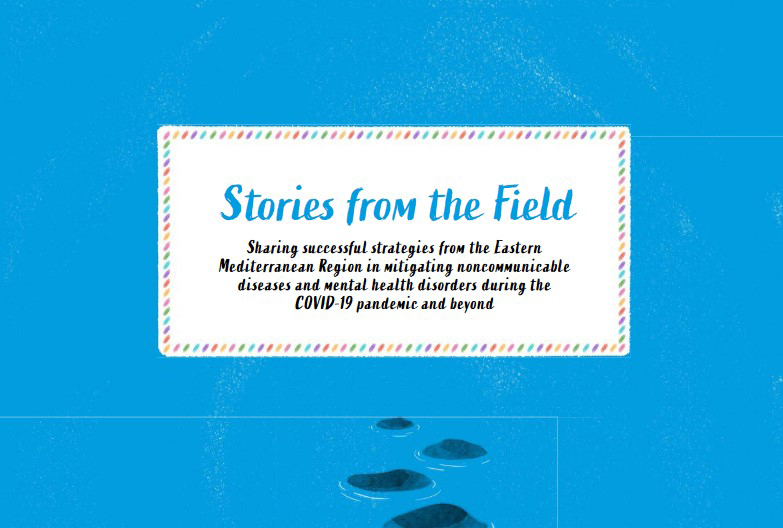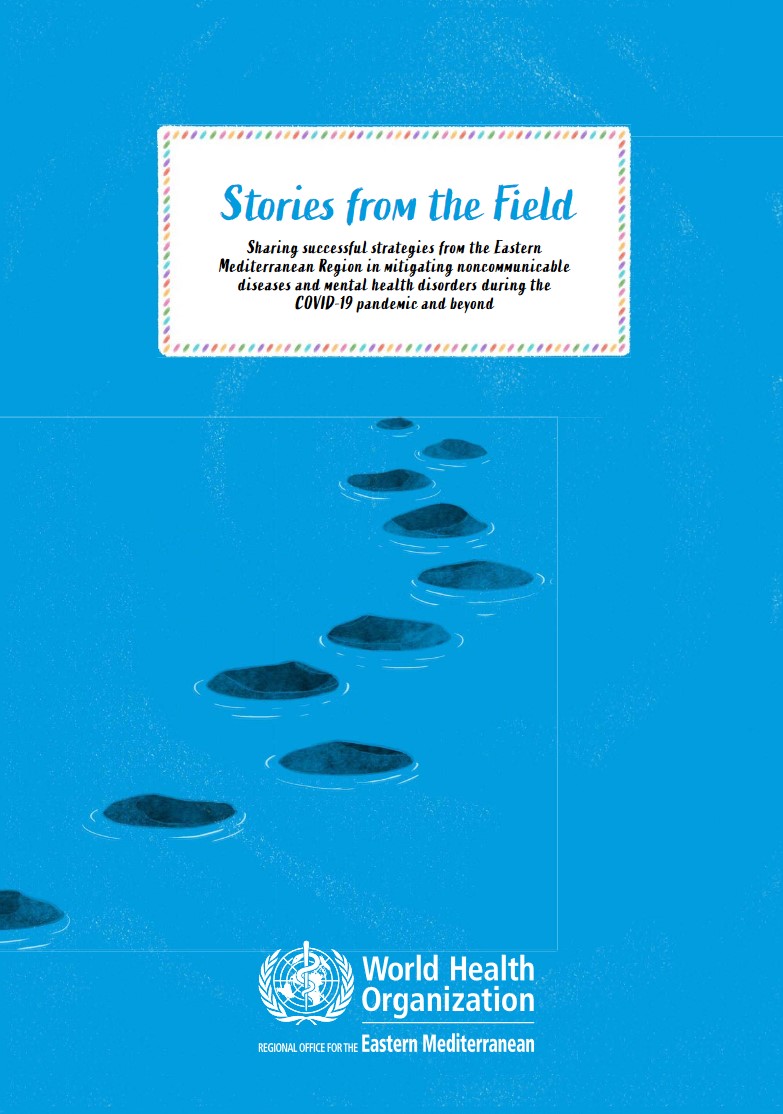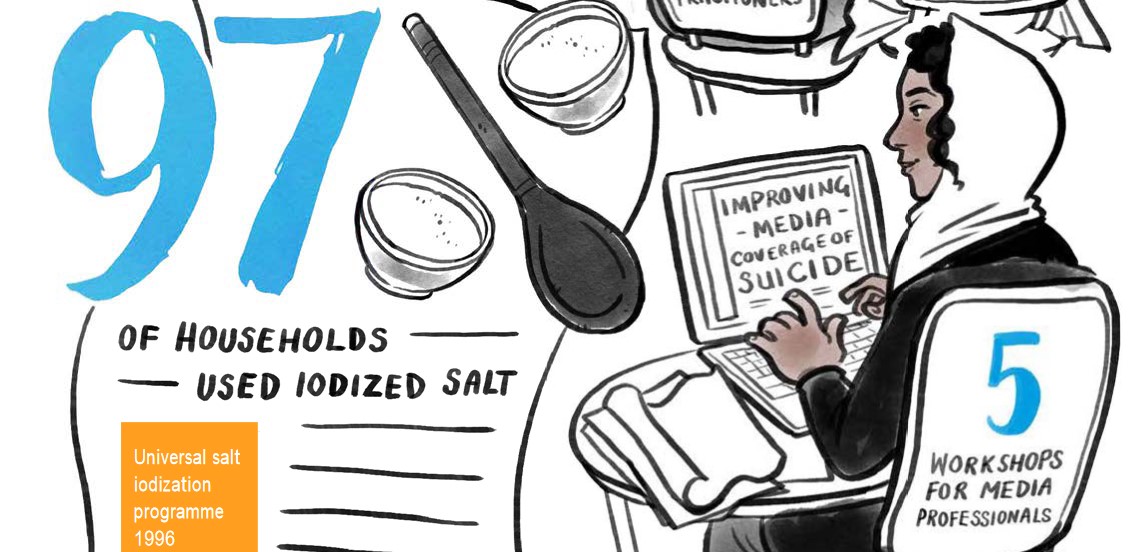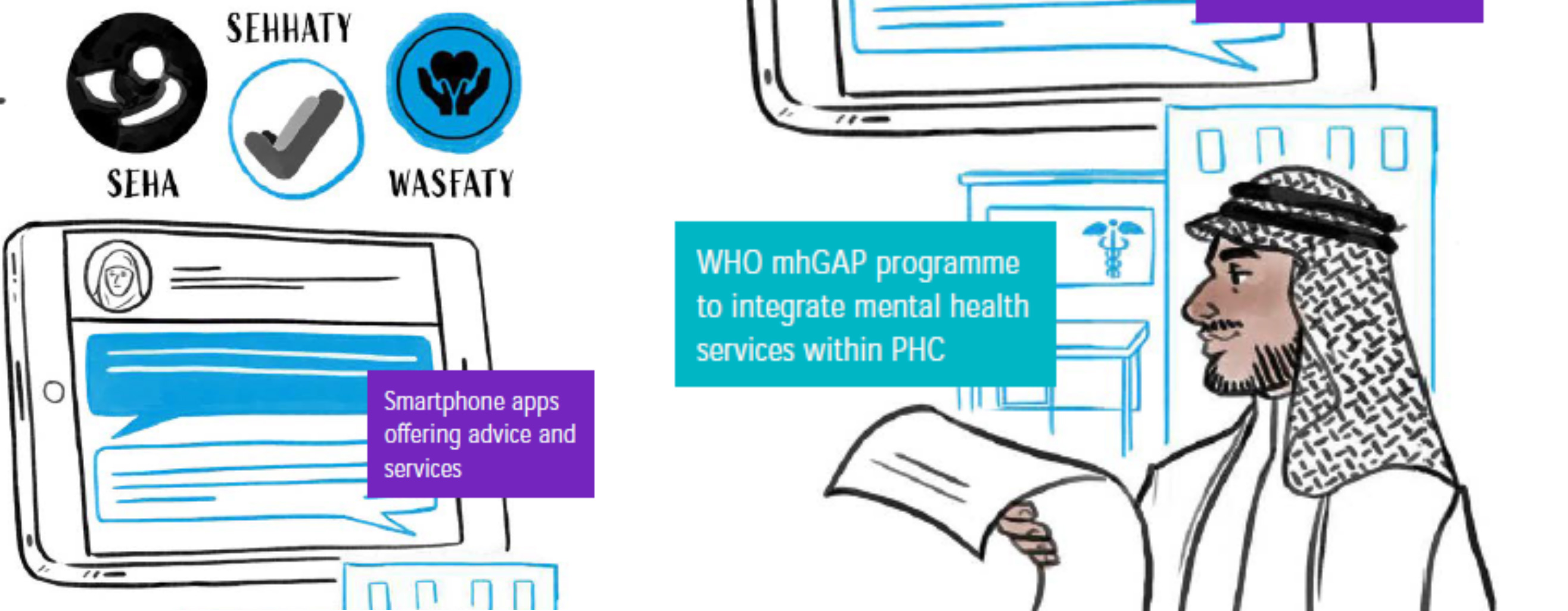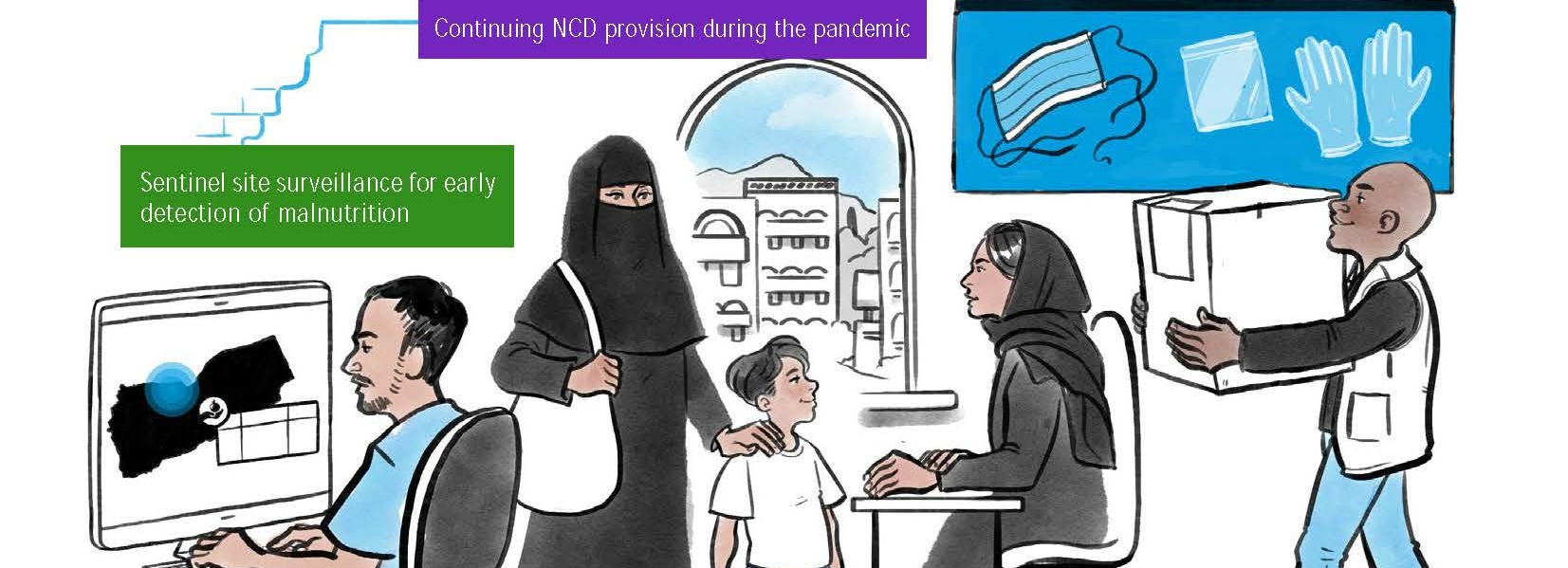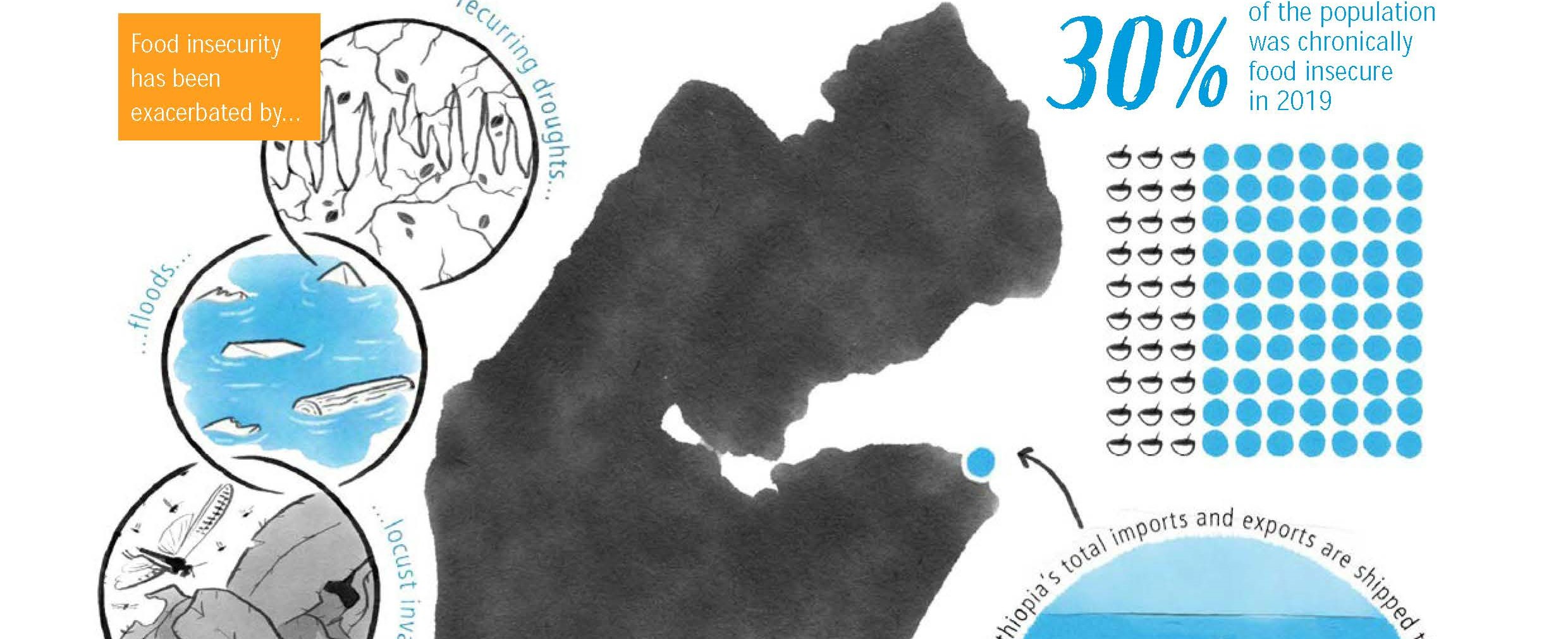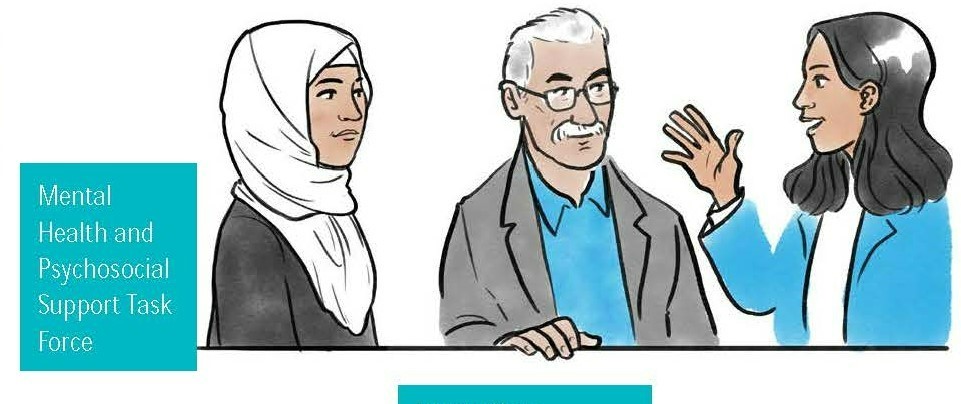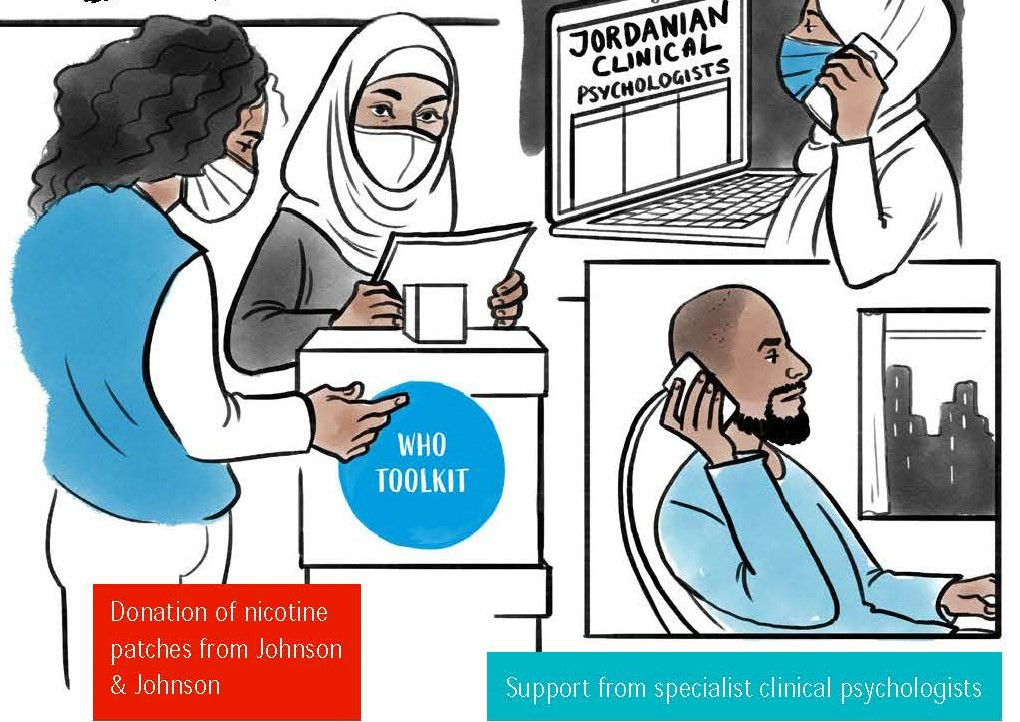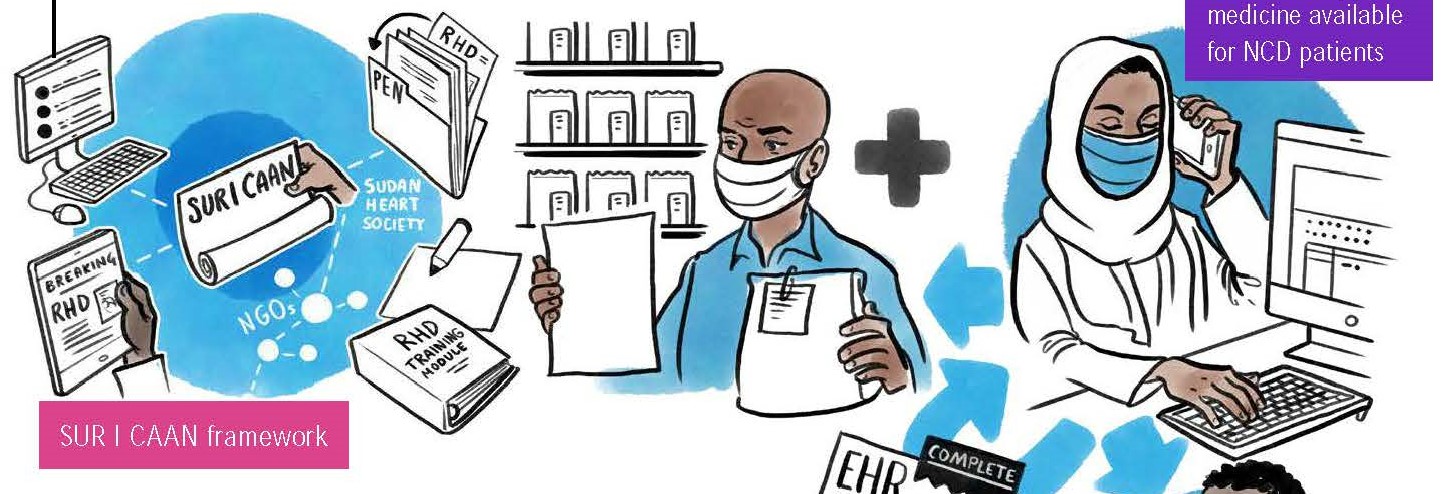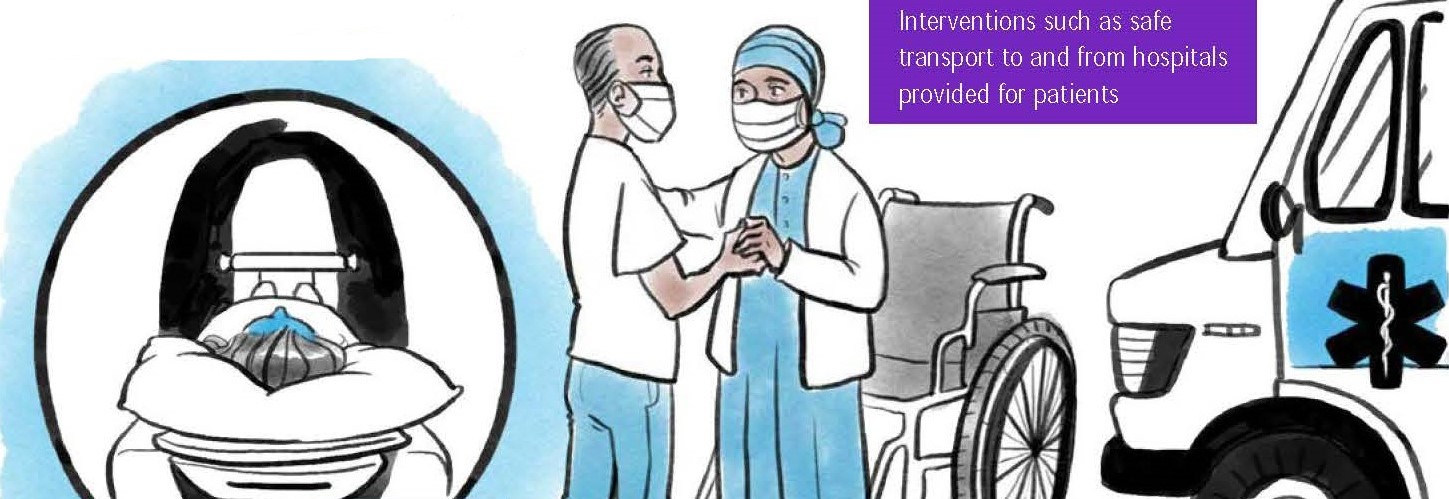Noncommunicable diseases (NCDs), such as cardiovascular disease, chronic respiratory disease, cancer and diabetes, are a leading cause of death in the Eastern Mediterranean Region. The WHO Regional Office for the Eastern Mediterranean has been working with countries across the Region to combat NCDs and mental health conditions both before and during the COVID-19 pandemic.
These stories from the field showcase the strategies that countries took to mitigate NCDs and ensure continuity of care for patients, while simultaneously protecting them and the wider population from COVID-19. As the pandemic took hold, countries took bold steps to protect their citizens: from banning the public use of waterpipes to using technology to improve access to primary health care. Many of these strategies can be used to improve both public health and access to health services beyond the pandemic.
Countries across the Region also focused on the mental health of their citizens. New and innovative ways of accessing mental health support, despite pandemic restrictions, helped people receive the treatment they needed. Countries also turned the anxiety caused by the pandemic and its social and economic effects into an opportunity to break down taboos and promote the discussion of mental health issues.
The Eastern Mediterranean Region is diverse and includes some of the world’s highest and lowest income countries. The work they have undertaken to address NCDs and mental health disorders in the face of not only COVID-19, but other crises, including conflict and population displacement, can therefore offer insights to a wide range of countries around the world. By sharing these stories from the field, WHO and countries of the Region aim to promote successful strategies to mitigate NCDs and mental health disorders now and in the future.

